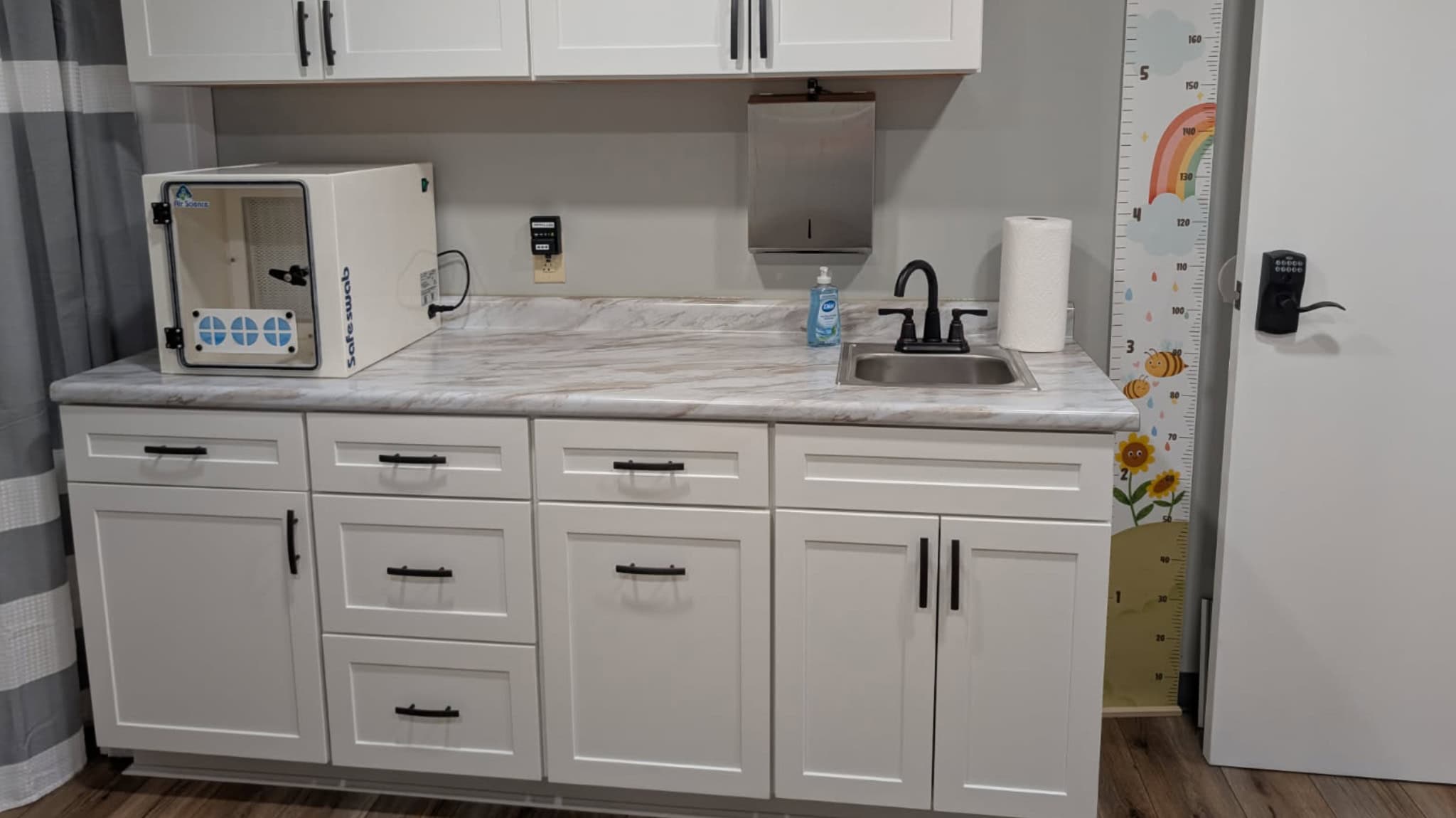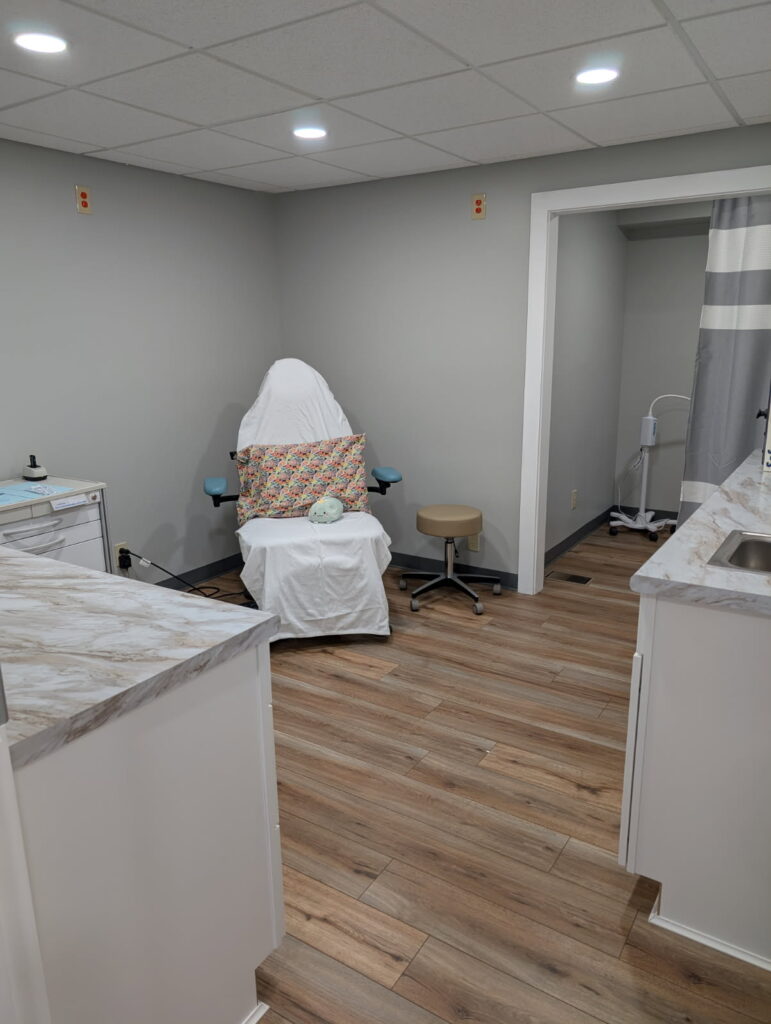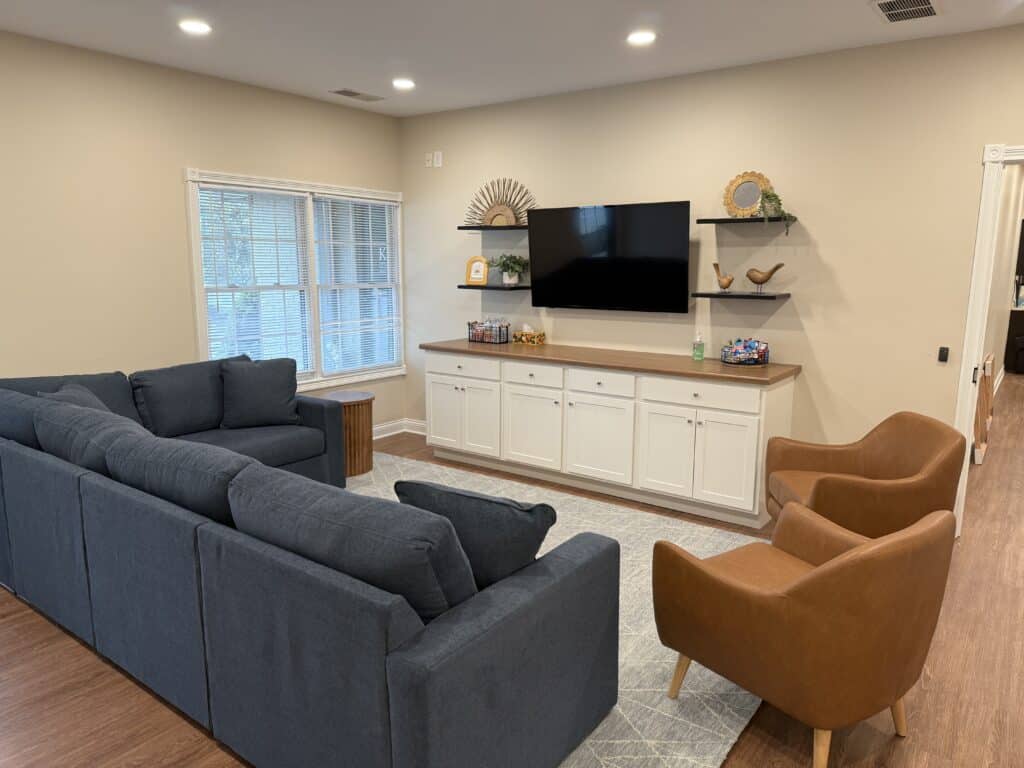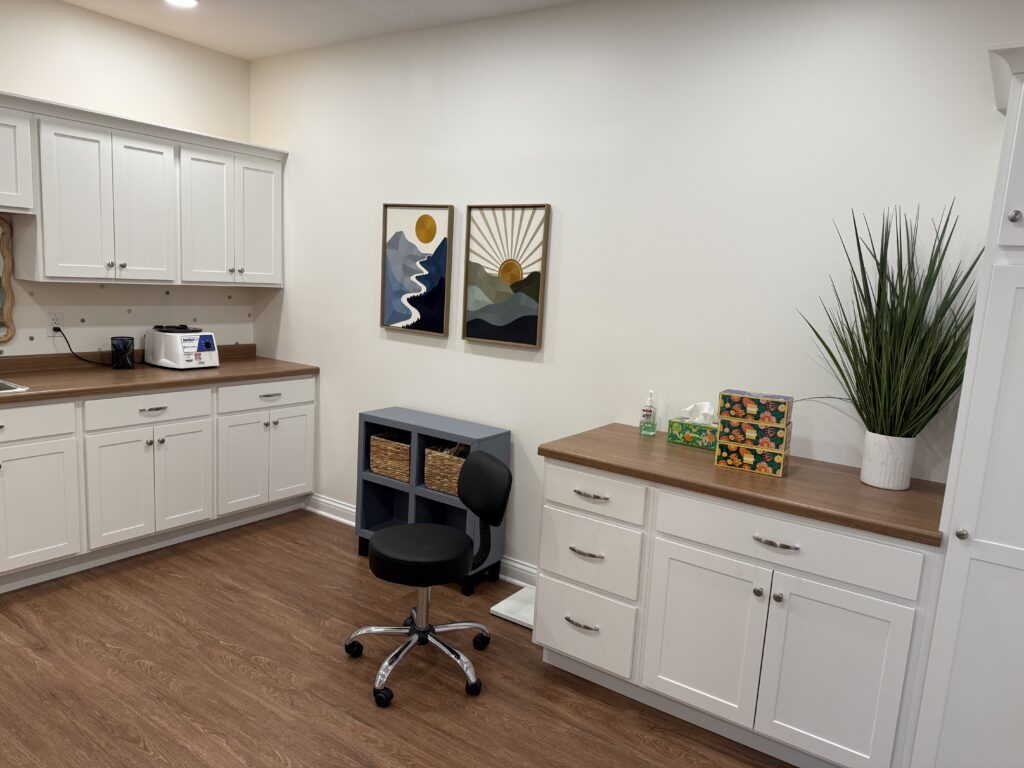In the span of a single spring week, two Indiana Child Advocacy Centers made big leaps forward in providing trauma-informed medical care for Hoosier kids. In northeast Indiana, McKenzie’s Hope CAC in Huntington County has opened its first-ever in-house medical exam suite. Downstate in Bloomington, Susie’s Place unveiled a new, larger space that roughly doubles the size of the whole CAC and includes a revamped medical suite and consultation area. For the families who visit these CACs after an informed report of abuse, it means the next step to healing is just down the hall.
Now, kids and their families won’t always have to face a long drive—or a long wait—to ask the questions that weigh most heavily after sexual assault or abuse.
- Is my body okay?
- Am I pregnant?
- What about STDs?
- Are these bruises going to go away?
Answers are now a few feet around the corner or just a short drive back to the CAC. In calm, spacious rooms purpose-built for dignity and this kind of care, kids can ask what they need to know and be heard.
Inside, trauma-informed sexual assault nurse examiners (SANE) or medical doctors provide exams at no cost thanks to Victims of Crime Act funds covering provider costs, and donations from their communities covering the space.
Huntington County opens for service May 14, 2025
In Huntington-based McKenzie’s Hope, SANE-certified staff from the Fort Wayne Sexual Assault Treatment Center (SATC) are on-site every other Wednesday. The CAC has partnered with SATC since opening in 2006, but now kids who come for a forensic interview on a Wednesday could be seen the same day. For most, kids will return to the CAC for an exam or follow-up visit. The suite was funded in part by a National Children’s Alliance grant.
The hours may seem sparse, but for a rural county with a modest 36,000 people, the medical suite is a significant cost and time saver for everyone involved. “There’s a service drought for high-quality medical care around this part of the state,” says McKenzie’s Hope Executive Director Katie Schilling.
“Before, if [kids] needed a SANE exam, they may need to go to Riley Hospital in Indianapolis or all the way across Fort Wayne.” For most families, that’s at least an hour’s drive, maybe closer to two, and a significant expense in time, fuel, and mileage. Now, that scenario is involved only in the most life-threatening or urgent cases.
Susie’s Place expands and improves medical suite
In Bloomington, Susie’s Place has expanded into 4,700 square feet of space that includes a waiting room for their Center, a medical consultation room, and a medical exam room.
“We started medical exams in Bloomington in 2012,” explains Executive Director Emily Perry. “Since then, we’ve learned a lot. Before, we didn’t have an ADA-compliant bathroom in the suite. So some kids would have to go out into the rest of the CAC, past the waiting room and whoever might be there. We just didn’t have the space for one. But we knew we could get even better.”
Susie’s Place partners with IU Health Physicians, which provides on-site SANE nurses. “The current medical staff trained to do this in partnership with Susie’s Place,” says Perry. NCA accreditation standards require medical staff to be trauma-informed to ensure best practices for working with evidence and sexually assaulted or abused kids. Even emergency room physicians or pediatricians who are used to seeing abuse cases can find the accreditation standard a high bar for care. “Dr. Richard Malone had never gone through this training, and he did so along with us because he recognized the need. He saw the cases here,” says Perry.
Susie’s Place raised $135,000 in no small part thanks to Dr. Malone and the medical team. A United Way matching grant and other individual donations help Susie’s Place cover the cost of supplies, lease, and utilities.
Both medical suites let kids know it’s okay to be normal
“What makes this space so important to me when I walk through is all the little details that make every single child feel welcome in that space,” says Perry with an obvious sense of pride. “That space was designed with every kid and teen in mind to offer a safe space for help with their bodies, to ask questions, and to really propel them into that healing part of their journey. It really is an important moment to be able to reclaim your body after being victimized. To know that it’s normal to be normal.”
Schilling notes, “SATC staff come here, and it’s not just for our cases. We can open our medical suite to nearby counties with a small CAC, or to counties that aren’t using a CAC regularly to encourage them to come here.”
New doors have opened for families near these CACs that represent a step forward for better service and care. Both Schilling and Perry are quick to note this is “not just for evidence collection”, though it can be in some circumstances. This, they both agree, is a place where healing begins not just in theory, but in practice. As Perry explains, “It’s a huge relief to hear from a medical professional that their bodies are okay, that they can begin to heal, and move forward.




